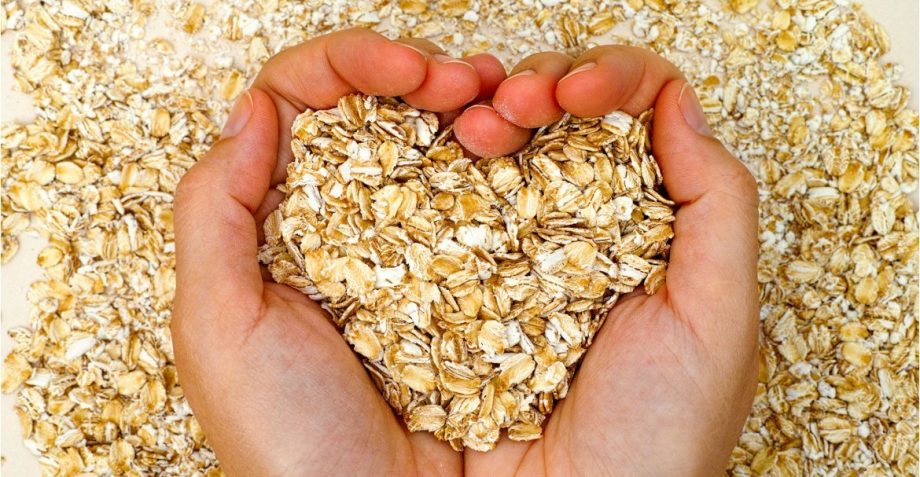Schullo Oats are organic and glyphosate free! Don’t just take our word for it. Provenance matters: our full range of oats—steel-cut, oat bran, thick, and fine rolled oats—comes from Finland. The same is true of our wheat products.
Finnish oats and wheat are grown north of the 60 parallel, which is like growing these crops in Alaska or Greenland! Finland’s pristine wilderness gets up to 19 daylight hours in the summer, and its Arctic weather produces the world’s finest premium oats and wheat.
One of the greatest differences from most North American, Australian, and European farming practices is the fact that glyphosate is banned in Finland: “The pre-harvest treatment of cereals intended for food purposes with glyphosate is prohibited in Finland. In practice, this also applies to feed grain, as it is one of the quality criteria for the majority of grain buyers.” [i]
In comparison, the large grain-producing areas like Australia and North America have used glyphosate for decades as an herbicide to control weeds and grasses. While some studies have found that glyphosate on its own may not be carcinogenic, other studies have determined that there is evidence for the carcinogenic nature of glyphosate. In any case, it is the combination of glyphosate with other chemicals that increases its toxicity as an herbicide.[ii]
While the health benefits of oats are well studied and documented, we’ve listed a few of the benefits of rolled oats, steel-cut oats, and oat bran here, along with their references, for some light reading …
Oats May Reduce Asthma Risk in Children
A Finnish prospective study of 1,293 children found that those introduced to oats earlier were less likely to develop persistent asthma.[iii]
Oats May Boost Nutrition Profile of Gluten-Free Diets
Two studies from Scandinavia show that adding oats to a gluten-free diet may enhance the nutritional value of the diet, particularly with regard to vitamins and minerals, as well as increasing antioxidant levels. After six months, the addition of rolled oats, steel-cut oats, or oat bran resulted in an increased intake of vitamin B1 and magnesium. In the second study, the addition of naturally gluten-free oats allowed people on gluten-free diets to achieve their recommended daily intakes of fiber as well as increasing levels of a particular antioxidant called bilirubin, which helps the body eliminate free radicals as well as protecting the brain from oxidative damage.[iv], [v]
Oats Increase Appetite-Control Hormones
“Results of various studies revealed the therapeutic potentials of oats for body weight management, appetite control, strengthening the immune system, lowering serum cholesterol, and gut microbiota promotion by increased production of short-chain fatty acids.”[vi]
Oat Beta Glucans Can Improve Immune System Defenses
Italian researchers reviewed existing research about the positive effects of oat beta glucans on human health. They found that, in addition to reducing cholesterol and blunting glycemic and insulin response, beta glucans boost defenses of the immune system against bacteria, viruses, fungi, and parasites.[vii]
Oats May Help Reduce the Risk of Type 2 Diabetes
A review of the data, published in the Nutrients journal in August 2021, concluded: “Higher oat intake (more than 5.7 g/day) was significantly associated with lower risk of T2D (type 2 diabetes) when compared to lower consumption (less than 1.3 g/day).”[viii]
Oats Have a Beneficial Effect on Glucose and Lipid Profiles in Those with Type 2 Diabetes
“In conclusion, the present systematic review has revealed a beneficial effect of oats consumption on glucose and lipid profiles in patients with type 2 diabetes and could therefore be recommended to patients. Naked oats, having low calories, might provide more benefits and a recommendation of 3 g or more per day of β-glucan might be beneficial.”[ix]
Oats May Lower Bad Cholesterol
It has been widely studied and is well established that oats can help lower bad cholesterol (LDL). However, it is important to note that the less processed the oats are, the better effect they have on LDL. In a recent study, the effects of highly processed oats were compared with the oat in its natural form, rolled oats, oat bran, or steel-cut oats; the beneficial impact is greater with the less processed oat.[x]
Oats May Help Control Blood Pressure
The conclusions in one study noted: “The addition of oat cereals to the normal diet of patients with hypertension significantly reduces both SBP (systolic blood pressure) and DBP (diastolic blood pressure). Soluble fiber-rich whole oats may be an effective dietary therapy in the prevention and adjunct treatment of hypertension.”[xi]
Oats Increase Feelings of Satiety
Oats increase feelings of satiety. Due to the high fiber content of rolled oats, oat bran, and steel-cut oats, it takes longer for the stomach to process them. This in turn stimulates the release of peptides, which are involved in appetite regulation. The oat beta glucans have a positive effect on perceptions of satiety.[xii]
Oats Help Digestion
Laxative use, especially among the elderly in nursing homes, can lead to malnutrition and unwanted weight loss. Viennese researchers studied 30 frail nursing-home residents in a controlled, blind, intervention trial, where 15 patients received 7–8 g of oat bran per day. At the end of six weeks, 59% of the oat group had discontinued laxative use while maintaining their body weight; the control group showed an 8% increase in laxative use and a decrease in body weight.[xiii]
[i] Production of Cereal and OilSeed Crops in Finland
[ii] National Pesticide Information Center
[iii] file:///British Journal of Nutrition, January 2010%3B 103(2)/266-73
[iv] European Journal of Clinical Nutrition, January 2010
[v] The European e-Journal of Clinical Nutrition and Metabolism, December 2009
[vi] Impact of Oats on Appetite Hormones and Body Weight Management: A Review
[vii] file:///Minerva Medica, June 2009%3B 100(3)/237-45
[viii] Oat Intake and Risk of Type 2 Diabetes
[ix] The Metabolic Effects of Oats Intake in Patients with Type 2 Diabetes: A Systematic Review and Meta-Analysis
[x] Processing of oat: the impact on oat’s cholesterol lowering effect
[xi] Oat ingestion reduces systolic and diastolic blood pressure in patients with mild or borderline hypertension: a pilot trial
[xii] Dietary fiber and satiety: the effects of oats on satiety
[xiii] file:///Journal of Nutrition, Health, and Aging, February 2009%3B 13(2)/136-9




